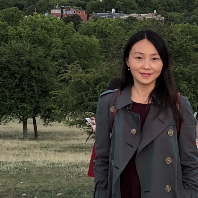
希腊文明初探 / A Journey to Greek Culture and Civilisation课程:前往报名学习
希腊文化与文明之于西方文化与文明,意义非凡,早已是共识。本课程涉及的很多希腊人物,在西方世界几乎是家喻户晓——荷马(Homer),苏格拉底(Socrates),柏拉图(Plato),亚里士多德(Aristotle),索福克勒斯(Sophocles),埃斯库罗斯(Aeschylus),阿里斯托芬(Aristophanes),狄俄尼索斯(Dionysus),普罗米修斯(Prometheus),俄狄浦斯(Oedipus),阿喀琉斯(Achilles),阿伽门农(Agamemnon),奥德修斯(Odysseus),珀耳修斯 (Perseus),赫拉克勒斯(Heracles),美杜莎(Medusa),潘多拉(Pandora),伊阿宋(Jason),美狄亚(Medea)等,这些虚构或真实的人物以及他们所承载的丰富涵义,在某些程度上,勾勒出古希腊人的思想维度之图,渲染出我们谈论古希腊文化与文明的重要背景和经久不衰的意义。
开设学校:重庆大学;学科:文学文化、
希腊文化与文明之于西方文化与文明,意义非凡,早已是共识。本课程涉及的很多希腊人物,在西方世界几乎是家喻户晓——荷马(Homer),苏格拉底(Socrates),柏拉图(Plato),亚里士多德(Aristotle),索福克勒斯(Sophocles),埃斯库罗斯(Aeschylus),阿里斯托芬(Aristophanes),狄俄尼索斯(Dionysus),普罗米修斯(Prometheus),俄狄浦斯(Oedipus),阿喀琉斯(Achilles),阿伽门农(Agamemnon),奥德修斯(Odysseus),珀耳修斯 (Perseus),赫拉克勒斯(Heracles),美杜莎(Medusa),潘多拉(Pandora),伊阿宋(Jason),美狄亚(Medea)等,这些虚构或真实的人物以及他们所承载的丰富涵义,在某些程度上,勾勒出古希腊人的思想维度之图,渲染出我们谈论古希腊文化与文明的重要背景和经久不衰的意义。
-Why Greeks
--Glossary
-Supplements
--Why Greeks-A preface by Professor Phiroze Vasunia
--The recommended reading list
-1.1Why Greek Myths Matter
--Glossary
--Mini-quiz
-1.2 The Quest for Origins
--Glossary
--Mini-quiz
-1.3 The Succession Myth
--Glossary
--Mini-quiz
-1.4 Creation of Mankind
--Glossary
--Mini-quiz
-Topic 1:Pandora and our risky curiosity
-1.5 Zeus and Olympia
--Glossary
--Mini-quiz
-1.6 Aphrodite and Eros
--Glossary
--Mini-quiz
-1.7 Athena and Parthenon
--Glossary
--Mini-quiz
-1.8 Apollo and Delphi
--Glossary
--Mini-quiz
-1.9 Hades and the Underworld
--1.9 Hades and the Underworld
--Glossary
--Mini-quiz
-1.10 Demeter and Persephone
--Glossary
--Mini-quiz
-1.11 Dionysus(Bacchus)
--Glossary
--Mini-quiz
-Topic 2: Dionysian vs. Apollonian
-1.12 Perseus and Medusa
--Glossary
--Mini-quiz
-1.13 Jason and Medea
--Glossary
--Mini-quiz
-1.14 Heracles: the Greatest Hero of All
--1.14 Heracles: the Greatest Hero of All
--Glossary
--Mini-quiz
-1.15 UCL Talk: Women in Greek Mythology
--1.15 UCL Talk: Women in Greek Mythology
--Glossary
--Mini-quiz
-1.16 UCL Talk: Greek Myths in Ancients and Moderns
--1.16 UCL Talk: Greek Myths in Ancients and Moderns
--Glossary
--Mini-quiz
-Topic 3: Why are we fascinated by myths?
-2.1 Why Homer Matters
--Glossary
--Mini-quiz
-2.2 The Trojan War
--Glossary
--Mini-quiz
-2.3 The Iliad
--Glossary
--Mini-quiz
-2.4 The Embassy to Achilles
--Glossary
--Mini-quiz
-Topic 4: If all life is a battle...
-2.5 The Odyssey
--Glossary
--Mini-quiz
-2.6 Odysseus and Polyphemus
--Glossary
--Mini-quiz
-2.7UCL Talk: Homeric Heroism
--2.7 UCL Talk: Homeric Heroism
--Glossary
--Mini-quiz
-2.8UCL Talk: Homeric Epics in Ancients and Moderns
--2.8 UCL Talk: Homeric Epics in Ancients and Moderns
--Glossary
--Mini-quiz
-Topic 5: If all life is a journey...
-3.1 Why Greek Theatre Matters
--3.1 Why Greek Theatre Matters
--Glossary
--Mini-quiz
-3.2 Aeschylus
--Glossary
--Mini-quiz
-3.3 Prometheus Bound
--Glossary
--Mini-quiz
-3.4 Sophocles
--Glossary
--Mini-quiz
-3.5 Oedipus the King
--Glossary
--Mini-quiz
-3.6 UCL Talk: Aristotle and Greek Tragedy
--3.6 UCL Talk-Aristotle and Greek Tragedy
--Glossary
--Mini-quiz
-3.7 UCL Talk: Fate and Free Will
--3.7 UCL Talk-Fate and Free Will
--Glossary
--Mini-quiz
-Topic 6: Can we "take fate by the throat" (Beethoven)?
-3.8 Euripides
--Glossary
--Mini-quiz
-3.9 Aristophanes
--Glossary
--Mini-quiz
-3.10 The Clouds
--Glossary
--Mini-quiz
-3.11 UCL Talk: Greek Comedy
--Glossary
--Mini-quiz
-Topic 7: What makes a good education?
-4.1 Why Greek Philosophers Matter
--4.1 Why Greek philosophers Matter
--Glossary
--Mini-quiz
-4.2 Socrates
--Glossary
--Mini-quiz
-4.3 The Trial of Socrates
--Glossary
--Mini-quiz
-4.4 Socrates' Apology
--Glossary
--Mini-quiz
-4.5 UCL Talk: The Death of Socrates
--4.5 UCL Talk: The Death of Socrates
--Glossary
--Mini-quiz
-Topic 8: To live an examined life?
-4.6 Plato
--Glossary
--Mini-quiz
-4.7 The Republic
--Glossary
--Mini-quiz
-4.8 Plato's Cave
--Glossary
--Mini-quiz
-4.9 Philosopher-Rulers
--Glossary
--Mini-quiz
-4.10 UCL Talk: Plato's Republic
--4.10 UCL Talk: Plato's Republic
--Glossary
--Mini-quiz
-4.11 Aristotle
--Glossary
--Mini-quiz
-4.12 Aristotle's Rhetoric
--Glossary
--Mini-quiz
-4.13 Understand Human Emotions
--4.13 Understand Human Emotions
--Glossary
--Mini-quiz
-4.14 Understand Human Characters
--4.14 Understand Human Characters
--Glossary
--Mini-quiz
-4.15 UCL Talk: The Power of Rhetoric
--4.15 UCL Talk: The Power of Rhetoric
--Glossary
--Mini-quiz
-Topic 10: Is rhetorical game all around?
-The Greek Legacy
--Glossary
四川大学英语语言文学学士,重庆大学外国语言学及应用语言学硕士,英国伦敦大学学院古典系访问学者(2017年-2018年),现任重庆大学外国语学院讲师,主讲多门英语课程(《学业素养英语》《希腊文明初探》《西方思想经典导读》)及一门全校通识课(《希腊神话的现代启示》),主编及参编英语教材多部,主研及参研人文社科项目多项,主要研究领域为英语教学及西方古典学。
PhD in Classics (University of Cambridge), 2009-10 British Academy/Leverhulme Senior Research Fellow, currently Emeritus Professor of Greek, in Department of Greek and Latin, University College London. Research interests: Greek literature, especially early Greek poetry, oratory, drama.
PhD in classics (Stanford University), currently Professor of Greek, in Department of Greek and Latin, University College London. Research interests: Imperialism and colonialism, the Classical tradition, cross-cultural interaction in antiquity, the relationship between prose and poetry.
PhD in Classics (University of Cambridge), currently Professor of Greek Literature and its Reception, in Department of Greek and Latin, University College London. Research interests: Greek literature and philosophy; reception; history of modern European thought; critical theory.
PhD in Classics (University of Oxford), currently a Leventis Research Fellow in Department of Greek and Latin, University College London. Research interests: Greek literature, Presocratic philosophy (especially Parmenides and Empedocles), Hellenistic literature and philosophy; interdisciplinary approaches to ancient texts that combine philosophical and literary-critical methodologies.
PhD in classics (The Open University and University of Oxford), currently a Leverhulme Early Career Research Fellow in English and Classical Studies Department, The Open University. Research interests: classical reception, classics and communism, classics and classes.


